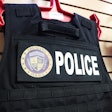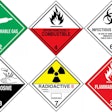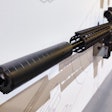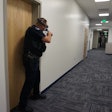It's 3:00 a.m. You're snooping and pooping, driving down a rear alley in a closed commercial district with your lights out. Suddenly, you see a car coming from the other direction, also blacked out. By its configuration, you know it's not a sister car out on a similar prowl. As the car draws near, you activate your lights because you don't want to get days off for driving with your lights off and having a preventable traffic collision. And suddenly there you are, doing a de facto head-on T-Stop.
We've all done it. And if we haven't done that, then we've violated any one of innumerable other officer safety rules.
But that doesn't mean we routinely have to indulge in such violations. Fate and circumstance can get the better of us without our tempting either. Thus we find ourselves in a Morton's Fork situation faced with choices that have equally undesirable ends: head-on T-Stop, or drive past the car and expose yourself to possible suspects inside the ride.
Sometimes, we're just screwed. And one of the ways we get screwed in this job is by becoming proficient at it.
Time on the Job
Look at the average tenure of an officer killed in the line of duty: Year after the year, it averages out to the eight- to 10-year range. That's a helluva lot of street smarts adorning the National Law Enforcement Officers Memorial Wall in Washington D.C. How is it that this happens?
There's a ton of viable explanations, and no doubt the answer is probably an amalgam of a good many of them. But I want to touch on one thing that might have something to do with it.
Losing the Adrenaline Rush
The first call I ever rolled on was a disturbance call out of East Los Angeles Station. The particulars are lost to me now, but I do remember that it involved an argument over trash cans. While perhaps not the most auspicious of inaugural calls, I still remember the sensation of my adrenaline kicking in as we began rolling to the location.
The veteran deputy I was riding with acted like it was no big thing (I really believe our discussion en route to the call was about the shredded beef burrito he was looking forward to eating after the call). But my imagination was working overtime manufacturing all manner of various permutations that would result in gunplay and massive body counts.
Of course, nothing happened.
And nothing much happened on the next call.
Or the next.
Somewhere in between all this stuff, the deputy I was riding with ate his burrito and my paranoid fantasies dissipated.
But in time, stuff did begin to happen.
Later, at another station, I found myself dealing with beatings, shootings, and stabbings on a fairly routine basis, a reality that was more or less replicated during my time as a patrol sergeant at still another station. And with each call or observation-based incident, I found myself becoming more and more comfortable. Sure, I got the occasional adrenaline rush. But I found that it took more and more of an ominous catalyst to get that adrenaline to kick in. In short, I was becoming more inured to the vagaries of patrol.
Like many cops, I also found myself courting a false sense of security. And on those occasions when I did get in over my head—such as stopping more players than I had any business doing—or did something similarly stupid, I somehow got away with it. But even then, I knew I'd screwed up.
I know I wasn't the only one making mistakes then, and I know there are still others doing the same thing.
Comfortable on Camera
The thing that got me thinking about this was one of those True Crime shows. Some of the guys featured in the footage appeared to be pretty squared away. Others may have been merely unfortunate enough to experience a particularly bad day while in the vicinity of one of the camera guys. Perhaps, I wonder if they've just gotten a little too comfortable.
In any event, here are but a few of the mistakes that cops made with suspects—in one episode!
- Making threats, then not following through. This kind of inaction effectively emboldens suspects, which resulted in an escalated confrontation.
- Not handcuffing detainees when given an opportunity to do so—then watching guys haul ass from the back seat of their patrol car when they do decide to handcuff 'em and open the door.
- Telegraphing their punches. Yes, you do have to advise someone that they're being arrested. But that doesn't mean you have to tell them that before you get the cuffs on. Borderline compliance is a fine indicator that you'd better slap on the iron bracelets while you have the chance, and not when the guy or gal starts squirming around when they realize what you're up to.
Are these momentary lapses? Or bad practices, reflecting how they routinely perform their duties?
I don't know.
But here's what I'd like you to do. Take 10 or 15 minutes and just think about what you've done during the past week. Take stock of your patrol mindset and practices. Did you roll a little too hard in getting to a call? Did you turn your back on someone you shouldn't have? Had you rushed through a search?
Be genuinely critical of what you did—or didn't—do. If it could have been done better, make a vow to yourself that next time it will be.
2007 was a particularly horrendous year for officers killed in the line of duty. So far, 2008 isn't starting off very well, either.
I'm just hoping it doesn't get worse.













